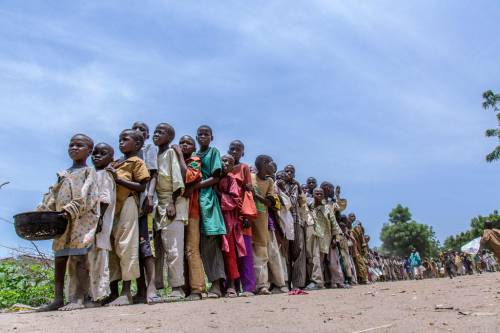
The United Nations World Health Organization (WHO) is ramping up its response in north-eastern Nigeria, where initial assessments have revealed urgent health problems among populations in areas formerly held by Boko Haram insurgents.
“Protracted conflict situations, such as seen in northern Nigeria – and the surrounding Lake Chad basin countries of Cameroon, Chad and Niger – are among the greatest threats to health, globally,” Peter Salama, Executive Director of WHO’s Health Emergencies Programme said in a news release today.
“Not only are they associated with the world’s highest rates of death among children and pregnant women, they can also be breeding grounds for infectious diseases and outbreaks – but are too often neglected by the international community,” he added.
According to WHO, mortality rates are estimated at four times higher than emergency thresholds in some of the 15 local government areas (LGAs) formerly held by the insurgent group. Furthermore, the rate of severe acute malnutrition is estimated to be 14 per cent, measles cases have also been reported in the area, and both the cases of polio reported by the country for the first time in two years were in Borno state. One of the cases is from an LGA that is still inaccessible to health service delivery while the other is from a newly accessible one.
Highlighting the urgency of prompt action, WHO further noted: “The immediate goal […] is to urgently reduce the rates of death and disease by rapidly scaling up life-saving health services.”
The agency said it will work closely with local officials and specialist agencies to address the health risks posed by malnutrition, disease outbreaks, and long-term lack of access to basic health services.